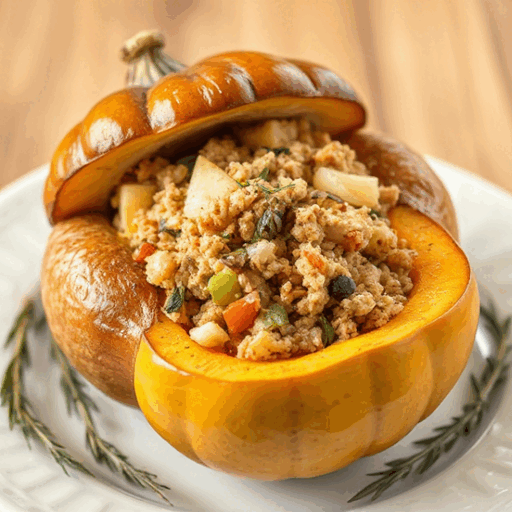What are the Collagen-rich foods?
Collagen is a body-produced fibrillar protein that gives elasticity and…

Your heart works tirelessly for you—day and night, without pause. Taking care of it isn’t just about living longer; it’s about living better, with energy, vitality, and the freedom to enjoy life fully. Fortunately, creating a heart-healthy lifestyle doesn’t have to be complicated. Small, consistent habits can make a world of difference in keeping your heart strong and thriving.
Exercise for at Least 30 Minutes Daily
Movement is medicine, and your heart thrives on it. Exercise doesn’t have to mean intense workouts at the gym—even 30 minutes of brisk walking, cycling, swimming, or dancing can get your blood pumping and strengthen your cardiovascular system. Regular exercise improves circulation, reduces blood pressure, and helps maintain a healthy weight, all while boosting your mood and energy levels.
Find something you enjoy—it’s much easier to stick with it when it feels like a treat rather than a chore. A walk in the park, an evening bike ride, or even a dance session in your living room counts!
Eat Heart-Friendly Foods
Nourishing your body with the right foods is one of the most powerful ways to support your heart. Include nutrient-dense, heart-healthy foods in your meals, like fatty fish (salmon, mackerel, sardines), which are packed with omega-3 fatty acids that reduce inflammation and improve cholesterol levels. Nuts, seeds, avocados, and olive oil provide healthy fats that help keep your arteries clear and your heart functioning optimally.
Pair these with fiber-rich foods like berries, beans, and leafy greens to reduce cholesterol and support digestion. Whole, real foods—as close to their natural state as possible—are the ultimate fuel for a healthy heart.
Avoid Trans Fats and Limit Saturated Fats
Not all fats are created equal. While healthy fats nourish the body, trans fats (found in many processed and fried foods) wreak havoc on your heart. They raise bad LDL cholesterol, lower good HDL cholesterol, and increase inflammation—a recipe for heart disease. Saturated fats, found in fatty cuts of meat and full-fat dairy, should also be enjoyed in moderation.
Make it a habit to read labels, avoid processed snacks, and opt for heart-healthy fats like those found in fish, nuts, seeds, and olive oil instead.
Maintain a Healthy Weight
Carrying excess weight places strain on your heart and increases your risk for high blood pressure, high cholesterol, and diabetes—all factors that can lead to heart disease. The good news? Small, sustainable changes to your diet and lifestyle can help you reach and maintain a healthy weight.
Focus on portion control, mindful eating, and filling your plate with whole foods. Combine this with regular movement, and you’ll support your heart while feeling lighter and more energized.
Reduce Salt Intake to Control Blood Pressure
Too much sodium can cause your body to retain water, raising your blood pressure and forcing your heart to work harder. High blood pressure is a silent threat to your heart health, but reducing salt in your diet can make a big difference.
Choose fresh foods over processed ones, flavor your meals with herbs and spices instead of salt, and keep an eye on hidden sodium in sauces, soups, and snacks. Your heart (and taste buds) will thank you!
Stay Hydrated with Water or Herbal Teas
Hydration is key for a healthy heart. Water helps your blood flow freely, prevents dehydration, and ensures your heart doesn’t have to work overtime to circulate blood. Herbal teas, like green tea and chamomile, offer added benefits with their antioxidant and calming properties.
Ditch sugary drinks and make hydration a daily habit—your heart will function more efficiently, and your energy will soar.
Avoid Smoking and Limit Alcohol Consumption
Smoking is one of the most damaging habits for heart health. It damages blood vessels, raises blood pressure, and significantly increases the risk of heart disease. If you smoke, taking steps to quit is one of the best things you can do for your heart.
Alcohol, on the other hand, should be enjoyed in moderation. Excessive drinking can lead to high blood pressure, weight gain, and other heart-related issues. Aim for balance and make choices that serve your health and longevity.
Practice Deep Breathing to Manage Stress
Chronic stress can take a serious toll on your heart, increasing blood pressure and inflammation while throwing off your body’s balance. Deep breathing exercises, meditation, and mindfulness are simple tools you can use to manage stress and calm your nervous system.
Take just five minutes a day to sit, breathe deeply, and let go of tension. Even this small practice can reduce your heart rate, improve circulation, and give your heart the rest it needs.
Monitor Your Cholesterol and Blood Pressure Regularly
Knowledge is power, especially when it comes to your heart health. Regular check-ups allow you to monitor your cholesterol, blood pressure, and overall cardiovascular health, so you can take action before issues arise.
If your numbers aren’t where they should be, small changes in diet, exercise, and stress management can help get you back on track. Your heart deserves that kind of care.
Include Leafy Greens and Fruits Like Berries in Your Diet
Leafy greens like spinach, kale, and Swiss chard are loaded with heart-healthy nutrients, including potassium, magnesium, and antioxidants that lower blood pressure and reduce inflammation. Pair these greens with vibrant fruits like blueberries, strawberries, and raspberries, which are rich in polyphenols that fight oxidative stress and improve circulation.
Adding a daily serving of leafy greens and berries to your meals is a delicious, simple way to give your heart the nutrients it craves.
Final Thoughts
Your heart is at the center of everything—literally and figuratively. By choosing heart-healthy habits like moving your body, nourishing yourself with real food, reducing stress, and staying hydrated, you’re giving your heart the support it needs to carry you through life with strength and resilience.
Remember, it’s the small, consistent choices that add up over time. Start with one or two habits, and build from there. Your heart works hard for you every single day—isn’t it time you returned the favor?
Here’s to a stronger, healthier you, one heartbeat at a time.
Collagen is a body-produced fibrillar protein that gives elasticity and…
copyright © 2025 Anti-Inflammatory Approach. All rights reserved. Unauthorized reproduction, distribution, or use of any content, including text, images, recipes, or other materials on this website, is strictly prohibited without prior written permission. This website’s content is provided for informational purposes only and does not constitute medical or professional advice.


This $1 anti-inflammatory cookbook is packed with simple, tasty recipes to reduce inflammation and improve energy. Don’t miss out—get it now on Amazon!